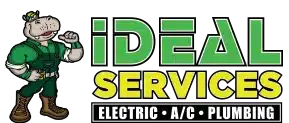Water is an essential part of our daily lives, from drinking and cooking to cleaning and bathing. However, the quality of water can vary significantly depending on your location. In many areas, the water supply is hard, meaning it contains high levels of minerals like calcium and magnesium. While these minerals are not harmful to your health, they can have a range of negative effects on your home and appliances. Water softeners are designed to remove these minerals, providing numerous benefits. At Ideal Services, serving Las Vegas and surrounding areas, we emphasize the importance of using water softeners to protect your home and appliances. Here are the risks of not using a water softener.
1. Scale Buildup on Pipes and Appliances
One of the most common issues associated with hard water is scale buildup. The minerals in hard water can accumulate inside your pipes, water heater, and appliances, leading to reduced efficiency and eventual breakdowns. Scale buildup can clog pipes, restrict water flow, and cause appliances like dishwashers and washing machines to work harder, consuming more energy and shortening their lifespan.
For more information on how hard water affects your home’s plumbing, check out this article.
2. Increased Energy Costs
When scale buildup occurs inside your water heater, it acts as an insulator, making it more difficult for the heater to transfer heat to the water. As a result, your water heater has to work harder and use more energy to reach the desired temperature. This inefficiency leads to higher energy bills. Additionally, appliances affected by scale buildup may also require more energy to operate, further increasing your utility costs.
3. Damage to Appliances
Hard water can significantly reduce the lifespan of your household appliances. The minerals in hard water can cause wear and tear on parts like heating elements, pumps, and seals. Over time, this can lead to frequent repairs and the need for premature replacement of expensive appliances such as water heaters, washing machines, and dishwashers.
4. Reduced Effectiveness of Soaps and Detergents
Hard water makes it more difficult for soaps and detergents to lather and clean effectively. This means you’ll need to use more soap, shampoo, and laundry detergent to achieve the same level of cleanliness. Additionally, hard water can leave behind soap scum on your dishes, clothes, and skin, making it harder to achieve a clean and fresh feel.
5. Dry Skin and Hair
The minerals in hard water can have a drying effect on your skin and hair. After bathing in hard water, you may notice that your skin feels dry, itchy, and irritated. Your hair may also become dull, brittle, and more prone to breakage. Over time, constant exposure to hard water can exacerbate skin conditions such as eczema and make it more difficult to maintain healthy, hydrated hair.
You can read this guide to learn more about the effects of hard water on your health.
6. Stains on Fixtures and Surfaces
Hard water can leave behind unsightly stains and deposits on your plumbing fixtures, sinks, bathtubs, and shower doors. These stains, often called limescale, can be challenging to remove and require regular cleaning to maintain the appearance of your bathroom and kitchen surfaces. Over time, the buildup of these stains can lead to permanent damage to your fixtures and surfaces.
7. Clothing and Fabric Wear and Tear
Washing your clothes in hard water can cause them to wear out more quickly. The minerals in hard water can become trapped in the fabric, making your clothes feel rough and causing colors to fade. Additionally, hard water can leave behind mineral deposits that cause clothing to become stiff and uncomfortable. Over time, repeated exposure to hard water can lead to increased wear and tear on your fabrics, reducing their lifespan.
8. Increased Maintenance and Repair Costs
The combination of scale buildup, appliance damage, and reduced cleaning effectiveness can lead to increased maintenance and repair costs for your home. Without a water softener, you may find yourself spending more on plumbing repairs, appliance replacements, and cleaning products. Investing in a water softener can help mitigate these costs by protecting your home and appliances from the damaging effects of hard water.
9. Potential Plumbing Issues
Over time, the buildup of scale in your pipes can lead to significant plumbing issues. The accumulation of minerals can cause blockages, reduce water pressure, and increase the likelihood of pipe leaks or bursts. These plumbing problems can be costly to repair and may require extensive work to restore your home’s plumbing system to optimal condition.
10. Decreased Property Value
If your home is located in an area with hard water, the lack of a water softener can negatively impact your property value. Potential buyers may be deterred by the prospect of dealing with the effects of hard water, especially if there are visible signs of scale buildup or damaged appliances. Installing a water softener can enhance the appeal of your home and protect its value.
Ideal Services Provides Water Softener Installation in Las Vegas and Surrounding Areas
Using a water softener is essential for protecting your home and appliances from the damaging effects of hard water. Ideal Services offers professional water softener installation to help you maintain a clean, efficient, and comfortable home. Serving Las Vegas and surrounding areas, our experienced team is ready to provide you with the best solutions for your water quality needs.

